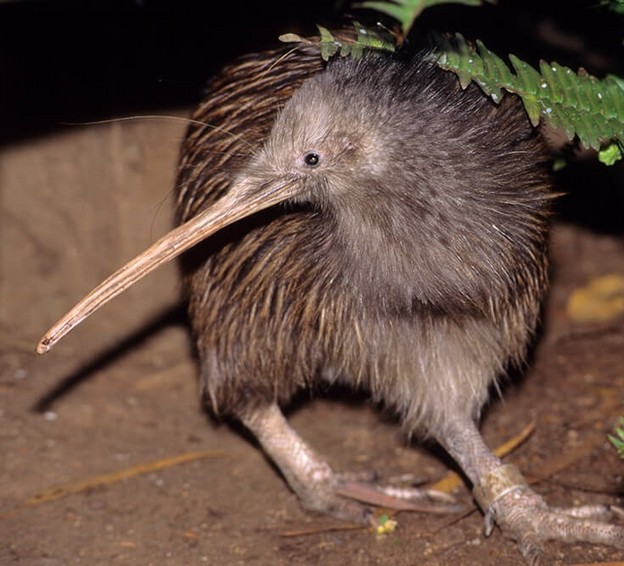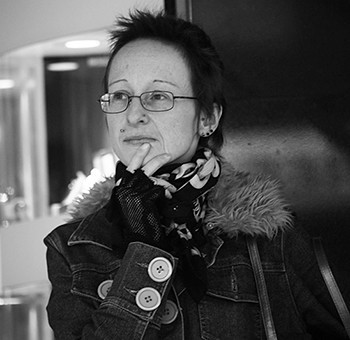Outside looking back in: Kiwi calibrate Kiwi poetry from afar.
Kiwi look back at Kiwi poetry

Kia ora ano.
As I strive to spread out any potential ingrained clench as to what makes for Kiwi poetry, any Kiwi poetic, away from ‘mainstream’ clutches that demand ‘appropriate’ ways of writing, presenting and publishing a poem, in this commentary I take into consideration what three expatriate Kiwi (aka Aotearoa New Zealand) writers think/reflect about Kiwi poetry from afar.
All three are themselves poets of note and all three certainly widen the avenues away from the tarsealed main road of poetry in New Zealand, precisely because they are overseas: outside, looking back in from the perspective of physical distance and the concomitant cultural capital involved. After initially establishing their overseas locale and history there, I asked them all the same simple questions regarding Kiwi poetry, as follows.
Background: I’ve been in England since 1971, when I first came over to study, after being at Otago University. Love, easy adventure and travel, constant new discoveries and inspirations, habit, and some particular bond to Norfolk and Lincolnshire have kept me here.
I’ve lived and worked in Little Ness (Shropshire), Liverpool, York, Upholland (Lancs), Rothwell (Northants), and had two year-long stints in Turkey, with jobs in Bursa and Diyarbakir. At the moment I’m in Markfield, between Leicester and Coalville, in the East Midlands.
I’ve been home every year, for anything from a couple of weeks to two months. I stopped work (twenty-one years of Leicester Student Support Service, teaching/helping kids about to be permanently excluded from schools in the area) five years ago, and can now travel where and when I want. A bit like being born again. I’m a confirmed South Islander, and usually pass my visits round St. Arnaud, Lake Rotoiti, Westport, and especially Karamea, with tons of beach-walking, tramping, and slapping generally through the bush. Contrary to expection, including my own, now long flattened, this time with the land is wonderfully and completely free of Thinking About the World, and Thinking Poetry. I mostly leave that at home. Empty head is good: the wordless world just swims on in. That also applies to the hundreds and hundreds of cycling miles I cover in Norfolk and Lincolnshire, here in England.
So, do you still consider yourself as — for want of a better term — a Kiwi poet? If so, why?
You bet. Through and through, top to bottom, hammered and nailed into my heart and soul, perpetual and (sometimes, being so far away) a bit longingly. It seems to me inescapable, woven into the fabric of everything I do, and everything I write. The subject, the place, the concerns of my writing may seem often not overtly Kiwi, but they are, because the poetry all comes from the place that, in my case, is a bloody big inside spirit-map of the South Island.
Of course, there are the big, bouncing, obvious bits: all of The Little Sublime Comedy (published by Carcanet last year) is my NZ life, set (to start with, of course, before we fly off to The Bad Place, The Better Place, and The Good Place) at Mt. Robert, St. Arnaud, Lake Rotoiti, and, being a big poem with big ideas, reflecting the values and beliefs and moralities and landscapes (and sailing insects and skiing pohutukawa-trees) of NZ; the collection of published this year; the Bush Bastards novel; the NZ sonnets; the poems about encounters with taniwha, the Oparara Fenian gold-diggings, and the Tale of Ao the Kiwi; Pacifictions (Cold Hub Press); and even Don’t think you know what happens next, one hundred little prose-poems, all set in NZ.
Relatedly, do you even see such a creature as ‘Kiwi poetry’? If so, what do you see as its distinct features? If not, how would you describe New Zealand poetry, given this is a rather general term?
Mostly, I expect folks would now expect me to say that deeper down, below the big, the bouncing, and the obvious, lies some universal process that means that poetry written about/in Aotearoa, can dance round the world, and be Meaningful, whatever the reader, whatever the particular, whatever that means. Nope, I think, for me, the opposite applies. My poetry is not the universal mooning, it’s the particular story, and that means my identification of being a kiwi poet, and writing kiwi poetry, is pretty damn simple: I was born and brought up there, I love it madly (perhaps distance has filtered my familiarity and concentrated it into something a tad ideal, though not deceptively ideal), and I write, pretty directly, about it. For a poet who writes mostly objective stuff (though still, of course, informed by subjective ideas, thoughts and feelings, you can’t escape that little troglodyte) tales, narratives, tiny travel poems, stories in poetry, things generally Not Me, this way of being En Zed in writing is, I guess, easier. I don’t struggle with any Being Kiwi-Being Of The World problem: I’d never try to define or limit the huge wobbly variety of what a NZ poet might be, both in her/himself and in subject-matter [my emphasis]. I just have to look at what I end up writing. And it’s NZ to the core.
By the way, here is John, craftsman extraordinaire:
Has being away, and being away so long, had any effect on your work?
Probably. I go home often enough for NZ, for me, to be that perfect mixture of my own, ordinary life, and the longing love affair. I can’t do anything to change that now, but, just like knowing what I see when I look, it’s still a thrill, still a passion. Over the thirty or so returns, I’ve not had so much time that things have become in any way ordinary, but have had enough to Find Myself. Good old Hippies: they were right — you’ve got a soul, now go out and find somewhere in the world where it belongs: you’ll know it instinctively when you get there. So this isn’t an unfathomable mystery: if you know what you like when you get there, the heart and soul, NZ or otherwise, will get to the places it needs to, and fill you with that special and weird feeling that a place, or an area, corresponds with your soul, just like liking certain music, pictures, writers, instinctively, and then spending bloody years trying to argue yourself into it mattering that you find out why. Bugger the why. You like spinach, you don’t like turnips. You like leaf-green, you’re not so fond of red. So, for instance, I find Karamea, and I go back to Lake Rotoiti, and that’s it. There isn’t any more that’s more. Anywhere. In the world. Being away, even ever so long, doesn’t nudge that happy monster out.
I’ve tried Samarkand, Mongolia, Iceland, Kazakhstan, Norway, Tunisia, Nepal, Egypt, Iraq, Iran, Turkey, Syria, Lebanon, Chicago, Vancouver, Morocco, Tokyo, Malaysia, Poland, the Orkneys, the Shetlands, Bulgaria, Armenia, Russia, Cuba, and on and on and on, and been dazzled and thrilled and excitingly endangered, rabies and all, and even felt strange fragments of belonging (Mongolia and Turkey). If that doesn’t budge the gorgeous old homeland, nothing ever will. And the poems themselves are the best witnesses to all that.
So let’s share a poem by John, as well as supply several links to more of his mahi (work).
Between Countries: A letter home from Fenian Creek Goldfields, Oparara
Patrick, the bush is empty and still.
If ghosts are thoughts then they are here.
The creek blinks with gold.
A fantail hither-whisks. It’s cold.
Who was the boy that was shot in his chair,
under his brothers’ exploding hearts?
Jesus, return him to dreams.
Far away here the water gleams.
Patrick, I drop each found-flake down
into a little water-jar.
It falls heavy and slow.
Cree-cree goes the tahou. I can’t go.
And I’ll go back to Tipperary,
and buy the dancehall over the shore,
and die in Dromineer,
and, save us God, not here, not here.
Patrick, the snow comes down like home
amongst the spars of manuka.
The creek is wattled with gold.
Just one more hour for luck. It’s cold.
I am gone so far as the world can be.
I live where the land is no man’s fee.
We scribble over the cold, cold sea.
I have grown a beard. Write to me.
Patrick, another flake falls down
into the little water-jar.
It falls heavy and slow.
Keer-keer goes the tui. I can’t go.
Carcanet and PN Review (United Kingdom publisher).
Cold Hub Press (New Zealand publisher)
Five Leaves Publications & Bookshop, Nottingham (readings, ‘Mad John’s Walk’) NB. Gallas and Rapatahana will be reading at Five Leaves on the evening of Monday, July 9, 2018. All welcome!
Blair Reeve is another Southern (NZ) man. Our paths cross whenever I return to Hong Kong SAR during any given year. And here he is.

Background: I left New Zealand at the beginning of 2001 and moved to Japan, where I lived for seven years. During this time I studied the Japanese language and didn’t write much poetry, though I did read quite a bit of New Zealand writing during this time. In 2008 I moved to Hong Kong and have been living here ever since. Hong Kong isn’t exactly a hub of international or Asian literature but I did do an MFA here in Creative Writing, the first of its kind outside of the US. I don’t think that held much value for me though, as ultimately I seem to have returned to poetry despite my focus on creative prose via degrees at Massey and the City University of Hong Kong.
Has being away, and being away so long, had any effect on your work?
This is par for the course.
Rap. Par. Rapper. Papa.
Parp parp! I’m a papa rapper!
I reap the people.
Pippety poppety rippety rap.
I’m on a par ten. I’m a rapper par none.
Er, no, that’s bar none.
Anyway, I pass. I parse. I passed the slam round!
Arp, arp!
That’s five lines per par.
I’m parched already, as parched as paper.
I’m a participant in my own porno
with parsnips and peanut butter.
I’ve got a partner. She participates too.
I’m par for the cour— No, I said that already.
I speak French.
Parlez vous si’l vous plait!
The pa par park attendant in Hong Kong park
Won’t let me ride the spiral slide.
The bastard. The parstard.
I’m a victim of park attendants & slam poets.
I’m just a white guy passing out.
Excuse me now while I park my arse.
Since August 2013, I have resided in Philadelphia, where I attend the PhD program in English at the University of Pennsylvania. Since I haven’t lived in the US for very long, I remain connected to a ‘Kiwiness’ and a Kiwi identity, although the geographical distance between the two countries has heightened my diagnostic, interpretive insights towards the Aotearoa literary landscape. This is to say, I feel closer to Kiwi poetry — and being a Kiwi poet — when I am at a critical distance. (Both Divya Victor and Julia Bloch have used this term to describe a pedagogical distance to difficult material, but it feels apt to apply this term here too.)

Finally, has residing overseas affected the way you write your own poems?
This leads me back to thinking about my own practice as a form of distance from Aotearoa. While contemporary American writers signficantly inform my work — Rachel Blau DuPlessis, Jennifer Scappettone, and Hannah Weiner, for example — my poetic inquiries are starting to draw on the environmental and climatic language networks between Oceania, Aotearoa, and Pennsylvania. For example, my first collection, a year of misreading the wildcats, (NY: The Operating System, forthcoming) explores plastics, petroleum cultures, climate change, and phantom islands, to invoke exasperations that have become too repeatable in both countries. Certainly this process of distancing as a way of becoming nearer to my poetic subjects is a project I wish to further explore.
Which leads straight onto one of Orchid’s recent pieces regarding this enviro-waste-ocean insanity and the overflow into the dasein of poetry. As written via this gifted poet’s words, how to carbonise poetry? (I must also add here that she organised/edited the much-missed REM, a bible for ‘experimental’ poets in New Zealand and beyond … it would be brilliant to see it phoenix-rise).
flowback | flowter
In Pennsylvania the petronauts also unurfed
a spring on which Barbados tar floated.
Oil lichened rocks & gravel,
rose to the surface like air bubbles
where it seaquilled
thin rainbow skins.
They ate their devotion,
the petronauts polypsed the
soil with pits that became
chocked with leaves & dirt
when the wells dried up
but by which time the petronauts
began to bedrock the water
with cracks from which gas sessiled air.
As a maximum of failure
the industry had created some 23,000 jobs,
including employment for roustabouts,
construction workers, helicopter pilots,
sign makers, laundromat workers,
electricians, caterers, chambermaids,
office workers, water haulers & land surveyors;
they wheated cities,
killed dogs & fush,
showered water, sweeting smelt metal,
rotten eggs & diarrhea,
flowback radon lungs,
throating their battlecries:
“Drill, baby, drill!”
They rattled the windows
Feasting in the Skinny Country: Aotearoa New Zealand Poetry